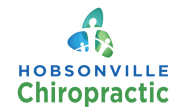Why do I have tight muscles? I don’t go to the gym? In fact I do no exercise at all?
Tight muscles can occur due to various reasons, including both overuse and underuse. Let’s explore these concepts:
-
- Overuse: Overuse of muscles refers to repeatedly stressing or working a muscle or group of muscles beyond their capacity or without adequate rest and recovery. This can lead to muscle fatigue, inflammation, and eventually tightness. Overuse can be seen in athletes, individuals who engage in repetitive motions, or those who don’t allow sufficient time for muscle recovery.
Examples:-
- A runner who consistently pushes their limits without giving their muscles time to recover may experience tightness in their leg muscles due to overuse.
-
- Person who shovels gravel for work 8 hours a day.
-
- Overuse: Overuse of muscles refers to repeatedly stressing or working a muscle or group of muscles beyond their capacity or without adequate rest and recovery. This can lead to muscle fatigue, inflammation, and eventually tightness. Overuse can be seen in athletes, individuals who engage in repetitive motions, or those who don’t allow sufficient time for muscle recovery.
-
- Underuse: Underuse of muscles occurs when muscles are not being regularly or adequately engaged through movement or exercise. When muscles are not used enough, they can become weak and tight as a result of reduced blood flow and decreased flexibility.
Example:-
- An individual with a sedentary lifestyle who spends long hours sitting at a desk might experience tightness in their back, neck, and hip muscles due to underuse.
-
- Underuse: Underuse of muscles occurs when muscles are not being regularly or adequately engaged through movement or exercise. When muscles are not used enough, they can become weak and tight as a result of reduced blood flow and decreased flexibility.
In both cases, muscle tightness can lead to discomfort, reduced range of motion, and even pain. It’s essential to find a balance between using and resting muscles to maintain their health and flexibility.
To manage tight muscles:
-
- See your chiropractor. Chiropractic care aligns the spine allowing your spine, surrounding musculature, and nervous system to be more functional.
- Stretching: Regular stretching can help improve flexibility and relieve muscle tightness.
-
- Massage and Foam Rolling: These techniques can help release muscle tension and knots by promoting blood flow and relaxing the muscles.
-
- Rest and Recovery: Adequate rest between exercise sessions is crucial to prevent overuse. This allows muscles time to repair and grow stronger.
-
- Hydration and Nutrition: Staying hydrated and consuming a balanced diet rich in essential nutrients can aid in muscle recovery and overall muscle health.
-
- Activity Modification: Whether due to overuse or underuse, adjusting your activity levels or incorporating variety in your exercises can help prevent muscle imbalances and tightness.
